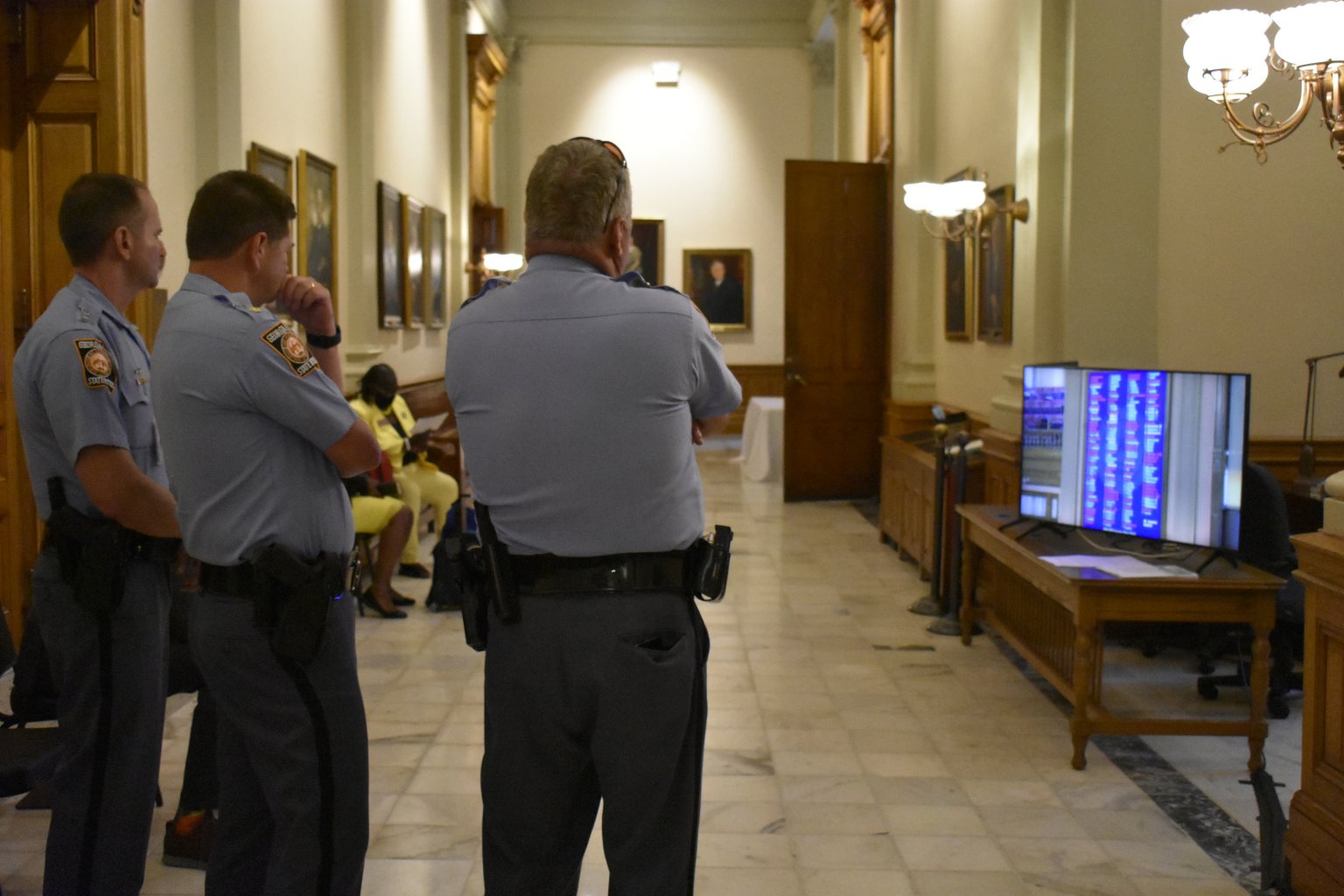
Pro-law enforcement legislation that adds more protections for police officers as lawmakers try to take Georgia off the short list of states without a hate crimes law narrowly passed Tuesday after a bitter debate.
The bill is part of the compromise struck in a standoff over a hate crimes bill that the House passed more than a year ago. The hate crimes bill, which also passed Tuesday and is now on the governor’s desk, picked up momentum after Ahmaud Arbery’s death in Glynn County and as demonstrators protest police brutality, sometimes just outside the Gold Dome.
“We are pitting law enforcement against our citizens,” said Rep. David Wilkerson, a Powder Springs Democrat. “I don’t know what to say. I love this chamber. I love this body. But I have never been so disappointed in my life.”
The bill makes it a “bias motivated intimidation” offense to “maliciously and with the specific intent to intimidate, harass, or terrorize” a police officer, a firefighter or an emergency medical technician because of their occupation – a protection that was briefly added to the hate crimes bill.
It also allows a police officer to sue any person, group or corporation who, for example, files a false complaint against them or abridges their civil rights.
House lawmakers took up the bill as senators debated the hate crimes law across the building and as Rayshard Brooks’ funeral was underway about a mile away at Ebenezer Baptist Church. Brooks is an Atlanta man who was fatally shot outside a Wendy’s after failing a field sobriety test and grabbing an officer’s Taser. Two Atlanta police officers have been charged in Brooks’ case.
“It’s a dangerous job,” said Rep. Bill Hitchens, a Rincon Republican, the bill’s sponsor in the House and a former state patrol officer who said he had known more than dozen patrolmen who died in the line of duty.
“For the pay that they get, it just amazes me, and I think we’re about to see a real decline in people who want to be law enforcement officers,” Hitchens said.
Republican House Speaker David Ralston said after the vote Tuesday that he rejected the push in the Senate to add the police protections to the hate crime bill because he thought it was important for the latter to have bipartisan support.
Whereas the hate crimes bill passed with a 127-to-38 vote in the House, the police protections bill narrowly passed 92-to-74. The police protections ended up in a bill that started out as a proposal dealing with peer counseling for law enforcement that breezed through the House earlier this year.
“When you attack a police officer, or fireman when they’re doing their job, they are not the only victim. The entire profession becomes the victim,” Sen. Bill Cowsert, an Athens Republican who pushed for the change, said Tuesday. “And how are we going to keep people that are willing to serve and put their life on the line every day?”
But Rep. Calvin Smyre, a Columbus Democrat who co-sponsored the hate crimes bill, said lawmakers passed greater police protections back in 2017 when the so-called “Back the Badge Act” created stiffer penalties for offenses committed against law enforcement.
“I felt like we had addressed that,” Smyre told reporters Tuesday.
The measure passed narrowly as protesters and others are calling for police reforms and greater oversight of law enforcement here and nationally.
Democrats called the bill vague and noted that lawmakers were empowering officers to sue even as qualified immunity for law enforcement is central to the ongoing national debates over policing. Rep. Mable Thomas, an Atlanta Democrat, said the bill amounted to “double qualified immunity.”
Georgia Recorder reporter Stanley Dunlap contributed to this report.







